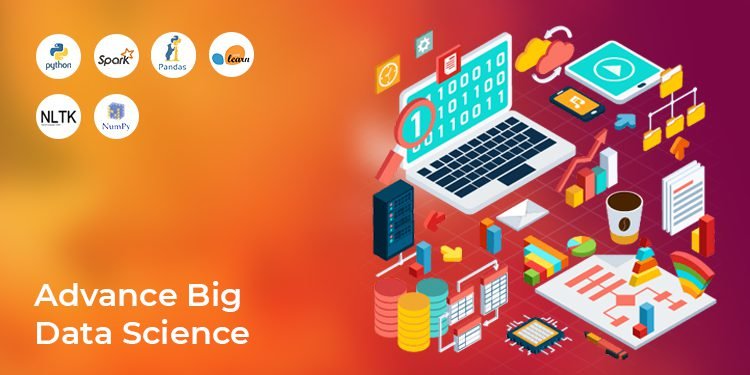While the difference between Big Data and Data Analytics isn’t huge, it’s an important one. Career streams in Data Science can diverge into two separate branches based on which one of the above you choose.
Both Big Data and Data Analytics focus on the same thing – processing large chunks of data for valuable insights. But the methodologies and tools used for the same are different. Therefore, you can choose to specialize in one career stream and continue progressing in it, or you can learn both.
In order to make a clear distinction, let’s define both the streams separately.
What is Big Data?
Big Data refers to the management and operations performed on extremely large data sets (one data set is often greater than 100GB) in order to extract patterns, trends, and insights that can power business decisions. Therefore, you have to cultivate expertise working with a large amount of data, and meet specific challenges that it presents.
- What all you learn in Big Data Analytics Training?
- Data optimization techniques.
- Finding relationships and patterns.
- Big Data tools such as Hadoop, MapReduce, etc.
- Compiling, sorting, and processing data using Python, R, etc.
What is Data Analytics?
Data analytics deals with obtaining relevant and very specific information out of smaller data sets. Where a Big Data analyst will sort through millions of rows of data, a Data Analyst will work on finding the statistical parameters in a given range. It involves reporting of elementary but well-defined parameters than can be analyzed for business value.
- What is taught when you learn Data Analytics?
- Applying statistical principles to data sets.
- Compiling and disseminating information from data sets.
- Generating goal-oriented reports for decision-makers.
- Working with analytical techniques for smaller data sets.
Which one to learn first?
- Direct Path
At Imarticus, we have made both the options available to the students. They can dive straight into Big Data Analytics Training which will prepare them for Big Data from grassroots levels.
Learning Big Data directly ensures that the students are absorbing the concepts they’ll use in professional places directly. They’ll be trained on various tools used in Big Data so that they can come to speed with the industry scenario.
Same is the case with Data Analytics. Students can learn Data Analytics directly and make it as their career objective. In case they don’t want to get into Big Data, this is an excellent Data Science alternative for them.
- Progressive Path
The second option available to students is to specialize in both Big Data and Data Analytics but in a progressive way. They’ll study Data Analytics first and then shift their focus to Big Data.
Although there is a significant difference between the two career streams, the underlying concepts remain the same. Therefore, someone with the knowledge of Data Analytics will not find it difficult to make the switch. Rather, they’ll be able to advance their career at will.
Conclusion
As Data Science flourishes as a career, Big Data and Data Analytics continue to be the two best career streams in the market. Our courses cater to both the streams exclusively, as well as, in an integrated way for students to plan their career logically.



